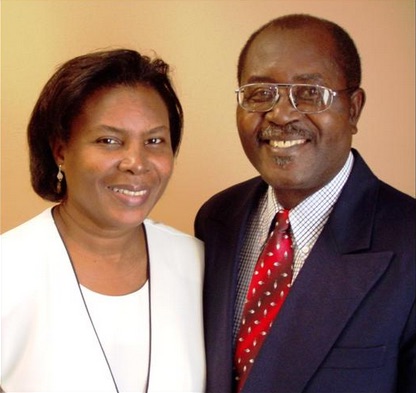About The Missionary
A DEDICATED, FAITHFUL SERVANT
Lucien Saül is a quiet leader, but he is strong, steady, determined, and fully dedicated to the will of God for his life. After Lucien graduated from Bible school in Port-au-Prince, he received a year of missionary training in Jamaica. While in Jamaica, he told the Lord that he wanted to go where no one else would go. God sent him to Bassin, a small village near Gonaives, with no electricity, no church, no school, no market – nothing. At first, Lucien, single at the time, had to have a cat to keep the rats from chewing his feet while he slept!
Bassin had been a stronghold of Satan, with voodoo being practiced by the majority of the people. Now a vibrant local Baptist church in Bassin stands as a testimony to the faithfulness of God in blessing the preaching and teaching of His Word.
Lucien Saül’s ministry has met an incredible need for training national pastors and missionaries that was not being met by anyone else. A second generation of Saüls, Royden & his wife Danielle, have moved alongside Lucien and Maude to help carry this ministry into the future.
Latest Prayer Letter (January 2024)
Project Giving Opportunities
Ministry Vehicle
- Need: $Please email financedir@ipmworld.org
Ladies Dorm Building
- Need: $Please email financedir@ipmworld.orgUpdates From The Field
Update from Haiti - March 18, 2024
About The Field:
Haiti, located in the Caribbean, faces a multitude of economic and social challenges that deeply impact its population, exacerbated by ongoing complexities in the country’s current situation.
Economically, Haiti confronts significant hurdles, marked by reliance on agriculture (mainly subsistence farming) and vulnerability to natural disasters. The economy suffers from chronic poverty, high unemployment rates, and limited access to basic infrastructure and services. Political instability and governance issues have impeded long-term economic development, contributing to a lack of foreign investment and economic diversification.
Social challenges in Haiti are diverse and profound. Access to quality education remains limited, with disparities in educational resources and infrastructure, particularly in rural areas. Healthcare accessibility and affordability are major concerns, leading to inadequate health services for many Haitians.
Poverty affects a substantial portion of Haiti’s population, leading to widespread social disparities and affecting living conditions for many citizens. The country is also grappling with significant environmental challenges, including deforestation, soil erosion, and susceptibility to natural disasters like hurricanes and earthquakes, which exacerbate food insecurity and displacement.
The country’s current situation is compounded by political unrest, frequent changes in leadership, and social unrest, leading to a fragile and volatile sociopolitical environment. The aftermath of natural disasters, such as the devastating earthquake in 2010 and subsequent disasters, has further strained the country’s ability to recover and rebuild.
Moreover, issues of corruption, weak institutions, and a fragile justice system contribute to social complexities and hinder progress in addressing these challenges.
